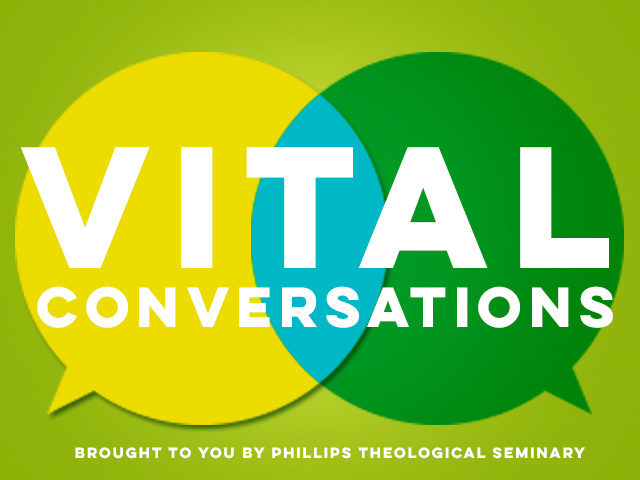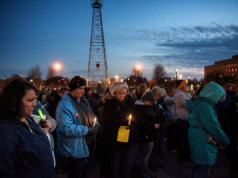There is no intellectual, cultural, political, or religious tradition of interpretation that does not ultimately live by the quality of its conversation…
(PLURALITY AND AMBIGUITY, ix), David Tracy, theologian
David Tracy’s thought has been foundational for how I see my work and how I view the work of others. How do we cultivate high-quality conversations? How do we have the conversations (and, yes, sometimes the arguments, too) that we need to have? How do we keep focused on the conversations that are vital for abundant life for all of God’s people and the rest of God’s creation?
As the president of Phillips Theological Seminary — which is sponsoring NonDoc’s Vital Conversations series — I thought I would start with a vital conversation for Christians.
Sociologist Robert Putnam wrote a book, Our Kids, about America becoming more of a land of unequal opportunity. In a recent public forum, Putman chastised churches for focusing more on issues such as abortion and sexuality than on helping the poor.
Responses to that public forum, a gathering that also included President Obama, were mixed. (Read Ross Douthat for a position opposing Putman’s.) Douthat and others tally the dollars religious organizations spend on programs to help the poor and compare that sum to an estimate of the spending on pro-life and traditional-marriage efforts.
The figures show a scale lopsided on the end of programs to help the poor. Douthat also asserts that one can attend many churches and go weeks without hearing the culture-war issues so prevalent in the media.
All of the above is the start of an important argument that could be a vital conversation — vital meaning either “life-giving” or “critical.”
For example, what are the figures on the number of congregations that, in a concrete way, care for the poor? What are the ways churches contribute to charity for the poor, and what are the ways churches contribute to justice for the poor?
Here is another way of assessing importance: a number of denominations and many, many congregations have been torn — and some are considering schism — owing to differences on matters of sexuality, marriage and the like.
I do not know a contemporary congregation or denomination pained by and contemplating schism over differences of opinion on how best to help the poor. Nor do I know of a church that has held together because members decided they were better able to help the poor united rather than divided.
So, maybe importance or salience of an issue cannot be measured only in terms of dollars.
While we may spend more on helping the poor than on other issues, we are making decisions about unity and schism based on those other issues, thus demonstrating the relative importance of those other issues. Surely whatever has the power to hold us together or break us apart indicates our deepest passions and commitments.
Who can help us have real conversations about matters as important as these?
To reply to this Vital Conversation directly, please submit letters for publication to letters@nondoc.com. To propose a full Vital Conversation commentary, please e-mail editorial@nondoc.com.






















